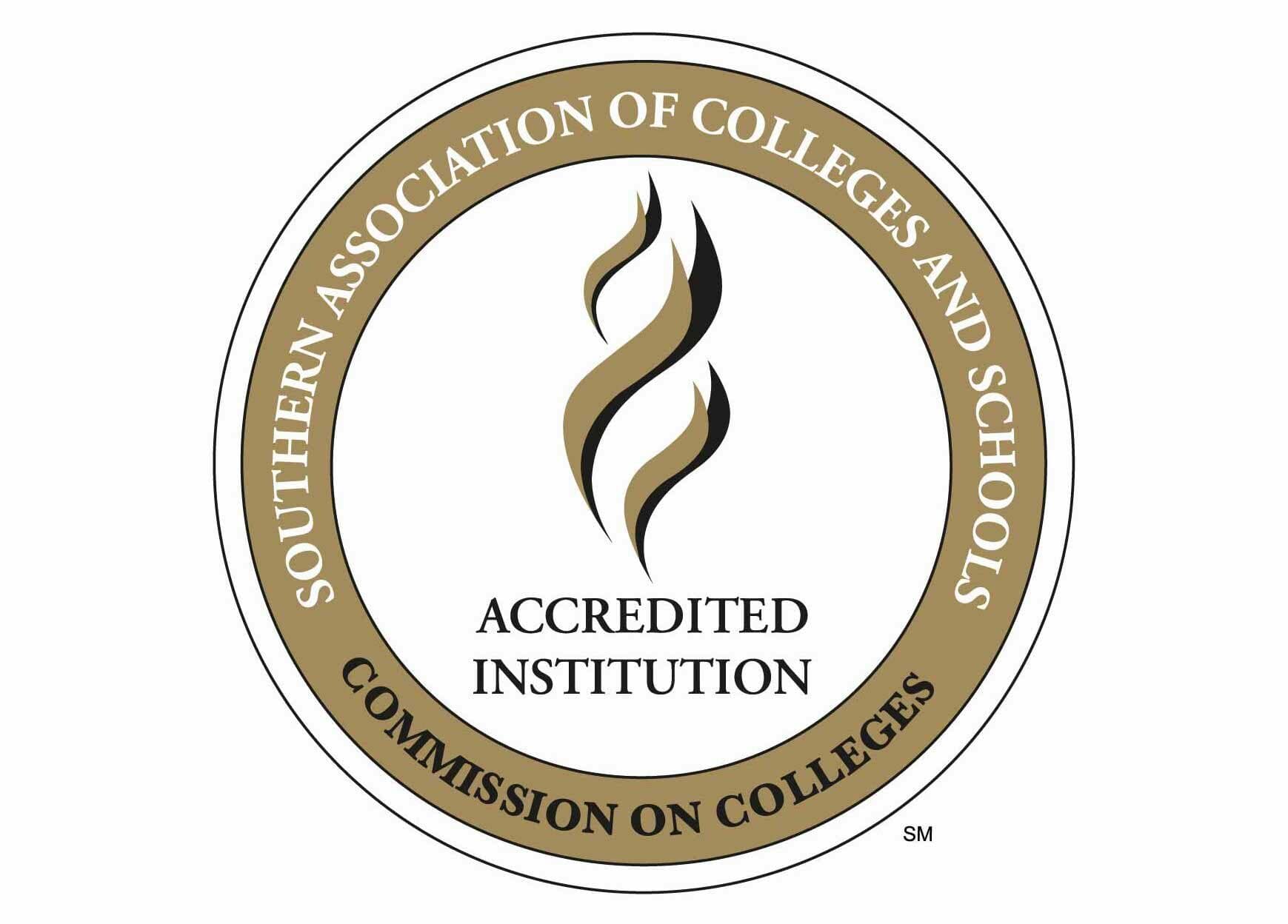Learn More
Promote Patient Care in a Growing Industry
Through multiple factors, the healthcare industry is seeing an influx of open positions — including for leaders ready to take charge. Learn to improve care quality and access from individual through community levels with ACU’s online Master of Healthcare Administration degree program.
Our online degree programs are designed for busy working adults just like you — intentionally structured to allow you to balance a full-time job, life and other commitments. As a student of ACU Online, you are part of a vibrant, virtual, Christ-centered community.
Introducing
Locked-In Tuition.
Our Locked-In Tuition program guarantees you’ll pay the same price for your entire graduate degree.
FREE Course for New Students
Enroll today and receive a FREE course! Simply complete your first three courses successfully, and you will get your fourth course for FREE. That’s a savings of $1,950! New students who begin classes in our Summer 1 session beginning May 6, 2025, will be automatically enrolled. Scholarship eligibility is session-specific. Please contact an ACU Online admissions advisor at 855-219-7300 for full award rules and disclaimers.
About the Program

ACU’s online Master of Healthcare Administration (MHA) allows you to gain industry insights immediately upon beginning coursework and develop a professional network tailored to healthcare leaders. Taught by experienced healthcare professionals, the program offers a depth and breadth of field-specific knowledge that is beneficial to students and stands out to employers.
Program Structure
All the Details on Your Degree
Through a Christian worldview, our Master of Healthcare Administration will prepare leaders in health organizations by focusing on innovation in the healthcare industry and exploring how faith shapes the ethical challenges of patient care. This program is ideal for students who are working professionals seeking to enhance their healthcare leadership and administration skills.
Stackable Certificate:
Earn a certificate while completing your master’s degree.
While enrolled in our Master of Healthcare Administration program, you will also earn a graduate-level Certificate in Healthcare Administration. Earn this valuable credential as you progress through your degree at no additional cost.
Timeframe
36 Hours
24 months
Cost: $650/Hour with $200 resource fee per term
Example Coursework
Foundations in Health Services Administration & Leadership
Community & Population Health: Transforming the Healthcare System
Self-Reflection in Healthcare Leadership
Innovation and Trends in Healthcare
Upcoming Start Dates
May 6, 2025
July 1, 2025
Common Job Titles
Director of Patient Access
Clinic Operations Director
Healthcare Strategy Director
Compliance or Business Operations Director
Vice President of Quality
Healthcare Research and Development Analyst
Population Health Manager
Concentrations
Healthcare Operations
The Healthcare Operations concentration focuses on systems and practices necessary for the administration of healthcare services. Students will explore the unique considerations of leading healthcare interdisciplinary teams, tools for population health management, and the use of information systems to drive clinical and administrative decision support. Students completing this concentration will be prepared to manage a variety of healthcare organizations.
Leadership
The Leadership concentration focuses on the tools and techniques that healthcare administrators use to inspire their teams and ensure the quality delivery of patient care. Coursework examines theoretical and practical models of leadership and strategies for leading organizational change. Students will also gain an awareness of their personal leadership and communication styles.
General
The General concentration offers broad exposure to the field of healthcare administration and leadership. Students can customize their degree by selecting from courses in the Leadership and Healthcare Operations concentrations. This concentration allows students to identify courses specific to their individual interests and professional goals.
Meet the Program Director

Dr. Meghan Hope, Master of Healthcare Administration
Dr. Meghan Hope is an assistant professor and program director for ACU’s Master of Healthcare Administration and Bachelor of Science in Healthcare Administration programs. Meghan received her Juris Doctor with health law concentration from the University of Tulsa and a Master of Healthcare Administration from Midwestern State University. Prior to joining ACU, she worked as a healthcare regulatory and operations consultant focusing on new hospital development, management, and reimbursement issues. With more than a decade of expertise in the healthcare industry, Meghan has also served as an administrator in community-based and academic healthcare environments. Her research interests and passions include healthcare policy influences on management decisions and regulatory considerations in clinical research.
Meghan received her master’s online and has since developed a passion for the online learning experience. She loves the opportunity to form meaningful relationships with her students while helping them develop the leadership skills and industry expertise necessary for successful careers in healthcare administration.
Spotlight

The Benefits of Healthcare Mentorship for Healthcare Administration Graduates
Whether you’re graduating this semester or considering joining the healthcare workforce, it is imperative to make lasting relationships with professional mentors who serve as a trusted source of wise counsel for guiding you in which career pathways suit you as a future healthcare administration leader.

Leveraging Your MHA Degree: Tips for Standing Out in the Job Search for 2024
The healthcare administration field is constantly in flux. Whether shaped by technological advancements, policy changes, or evolving patient care systems, knowing how to stand out as a Master of Healthcare Administration (MHA) graduate is imperative for future employment opportunities and staying ahead of the curve.

Planning your Healthcare Leadership Career
Becoming a leader in the healthcare industry takes more than just a few classes. Learn how ACU Online’s Master of Healthcare Administration program is creating transformative leaders with its holistic approach.

Student Spotlight: Kristi Mercer
Meet Kristi Mercer, wife, mom and recently named project director of development for the Institutional Campaign Priority Process at MD Anderson Cancer Center. From having reservations of going back to school to walking across the stage with diploma in hand, Kristi explains how her journey with ACU Online afforded her opportunities to shine personally and professionally.

Faculty Spotlight: Meghan Hope
A lot happens beyond the four walls of a hospital. For Meghan Hope, Program Director for Healthcare Administration programs at ACU Online, this was true throughout her education and continues to inspire her as she leads the next generation of healthcare professionals. Check out our latest blog to learn more about her story.

The Growing Need for Healthcare Administrators
A Master of Healthcare Administration is a versatile degree. The types of positions, duties, and settings can vary, but one thing is certain: there’s no shortage of openings for people with both a solid medical background and the right academic credentials.

Innovation in Healthcare: ACU Master of Healthcare Administration
Our online Master of Healthcare Administration program is growing quickly, but who is the Master of Healthcare Administration for? What are the benefits of this degree? Find out all of this and more in our blog post.

For our online degrees, Abilene Christian University keeps the pulse on industry trends — what’s in demand now and what has future growth potential. The healthcare industry’s rapid pace has resulted in a deficit of compassionate, knowledgeable leaders. Considering this, ACU Online launched the Master of Healthcare Administration program in August 2021 to prepare a spectrum of professionals to step up, empower patients and effectively steward their care.
Our online Master of Healthcare Administration is geared toward:
- pharmacists, physicians and nurses interested in cultivating their leadership skills to improve team or department operations in relation to patient care;
- healthcare administrative and support professionals interested in reaching the next level of their career;
- insurance and medical services professionals looking to broaden their knowledge to provide improved patient-centric services; and
- existing business and technology professionals considering a move to the healthcare field.
Based on figures from the Bureau of Labor Statistics, demand for medical and health services managers is predicted to rise 32% between 2019 and 2029. Fueling this shift are factors like a growing aging population and greater focus on preventative care.
ACU’s online Master of Healthcare Administration degree leads you to envision yourself in this role early on. Today, the healthcare industry values innovation, communication and big-picture thinkers, and your degree not only presents you as an engaged, dedicated leader but someone ready to direct policy and implement technology to benefit patient care delivery.
Your skills equip you to lead an entire medical facility, department, specific clinical area or a private practice. Healthcare administrators and managers are needed for these roles in:
- hospitals;
- rehabilitation centers;
- group practices;
- urgent care centers;
- research facilities;
- government programs;
- insurance companies;
- retirement communities;
- healthcare suppliers; and
- educational or advocacy organizations.

This 24-month program emphasizing leadership, relationship management and administrative skills in the specific context of healthcare helps community, medical facility and practice leaders face the industry’s current challenges and guide a spectrum of technical to administrative professionals to success. To achieve this, the online Master of Healthcare Administration:
- provides industry insights right from the start of the program to equip you with practical skills and tools to begin your journey;
- helps you develop an industry-specific professional network while expanding what you know about delivering healthcare services;
- strives to not only instruct but also graduate professionals who innovate from within the healthcare industry;
- approaches the ethical challenges of patient care with a Christian worldview;
- prepares you to plan, direct and coordinate medical and healthcare services;
- touches on key areas of healthcare administration, including revenue cycles management, human resources, information technology and supervising service delivery in primary care, pediatrics or a specialty practice;
- instructs you in the techniques to maintain supportive, meaningful relationships with internal and external constituents, from nurses and physicians to allied health professionals, insurance payers, information technology teams and compliance officers;
- trains you to deliver quality, accessible patient care in a cost-effective manner and foster a healthcare entity’s presence in your community; and
- stresses real-world examples through assignments and case studies.

To be considered for admission, students must:
- Complete the online program application accompanied by a non-refundable processing fee.
- Submit official transcripts showing earned bachelor’s from a regionally accredited college or university or the equivalent.
- Have a cumulative GPA of 3.0 or above, probationary status may be granted for those with a 2.5 to 2.99 GPA.
- Write a purpose statement addressing career goals and fit with the program, including the Christian identity of the university.
- Submit a current resume.

Abilene Christian University is accredited by the Southern Association of Colleges and Schools Commission on Colleges to award associate, baccalaureate, master’s and doctoral degrees. Contact the Commission on Colleges at 1866 Southern Lane, Decatur, Ga. 30033-4097 or call 404-679-4500 for questions about the accreditation of ACU.
Abilene Christian University enjoys a strong national reputation as one of the leading private Christian universities in the west and southwest, indicated by various ratings (such as U.S. News and World Report and other reports).




